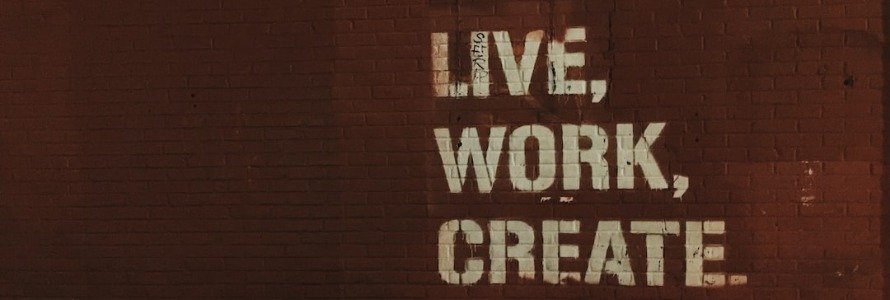
Explore Book Editing Tricks
27th February 2023
In this article, we will learn about what book writing is, editing types, editing and you, editing and personality types, and finally, the importance of professional book editing. In this modern world of technology, mixed with a creative personality type, you can write and edit your own books like a professional. This article is not about editing steps, but it will give you a full map. Let’s get started!
What Is Book Editing?
What do we really mean when we talk about editing your own books? Editing can mean doing different editing tasks to make your manuscript readable. These tasks are known as developmental and copy or line editing. When you look at the main concepts and how they relate to each other throughout the book, you are doing developmental editing.
If you are looking at grammar, spelling, and typographical errors, you are doing line editing, also known as copy editing. Proofreading is part of line editing, copy editing, and developmental editing. This is so because you are making the final corrections to everything you might have missed during other initial edits.
Related: Self-Publishing Ultimate Guide
When your ideas flow logically, this is good for easy reading. Also, big paragraphs and long sentences are not good for readability in any human language, not only English. You need shorter and precise sentences and shorter and logical paragraphs. You can do this during editing.
With the help of technology, you can catch most errors when you type your works into your favorite word processing tools such as Microsoft Word. I use Microsoft Word even for writing this article. Apart from the built-in proofreading and editing features in modern word processors, you can also configure them to check both grammar and style of writing at the same time.
You might also like: 3 Major Text Editing Types.
Even if you are an indie author like me, you might need a professional editor to help you out. However, I also encourage you to do your best before sending your work to professionals. It wills save you money if your work is almost perfect. It’s one of my challenges to date to find an affordable professional editor.
Is this an excuse? I don’t think it is. Rather, it’s a challenge to me, but I can’t allow that challenge to paralyze me. Instead of complaining about what I don’t have control over, I can better do what I can, and this is what I am doing today.
Types of Book Editing
Just as there are two main types of book publishing, there are also two main types of book editing: traditional and self-editing. Even if you want to use a well-known book publisher, you still have to do self-edit to the best of your knowledge and abilities. However, if you want to self-publish, you need to learn how to edit your books.
Book editing is a habit that you can learn and become better at over time. I have been doing it for the last ten years and I am going on with it. I can’t say I have mastered it so far. However, I am convinced that even professional editors are human beings with lots and lots of human errors.
In almost every good book I have read, (including my Bible), there is at least one possible error. This can be as little and as insignificant as a typo. Yet, this is an error, just as all sins are no less effective. This is a great boost and encouragement to me. It makes me stop excusing myself for waiting on someone else to tell me what to do with my book. The more I keep doing it, the better it becomes.
Both traditional editing and self-editing use the same editing techniques mentioned earlier such as developmental and line editing. Professionalism is very crucial when it comes to book production. For your information, editing is part of book publication.
Publishing a book is not limited to printing and distribution. It starts with the writing itself. Without a good manuscript, there will be no good editing. Editing, design, formatting and outlining, are all parts of the preparation. To publish a book means to make it ready for public consumption, whether as audio, digital, or print.
Editing a book makes it ready for publication. It makes it into a book instead of a random manuscript. That’s why many steps have to be taken to make sure the manuscript is now ready for sharing in whatever medium as mentioned above.
Book Editing and You
Okay, we have come thus far now. What do you personally think about book editing? Do you think you can give it a try? If so, there are lots and lots of resources about it, both free and paid. This article only gives you a bigger map. The map guides you through the area, not giving you specific instructions on editing.
You have a side. You either believe you can do it, or you believe you can’t give it a try. All views and beliefs are just fine and perfect. Listen to your gut feelings, always. This is good for you in editing as well as in life.
You don’t need to force yourself to do anything if you don’t feel like it. This is the power of individual liberty and freedom. You can choose whatever work for you and leave alone whatever isn’t working. However, you can only do this well after having some experience. Life is about trial and error, yet, this goes always with your personality type. This is why I want you to listen to your own feelings.
If you think you can give it a try, then you are ready to go. Yet, you can’t edit anything unless you already have it. This means you have to write something now before you even start editing it. It can be an article like the one you are reading. It can be anything like a book chapter.
For me, I write the main points first. This makes it easier for me to make my work flow logically. You don’t have to do this. I don’t plan my stories as such. But I write the headings, or rather, I type them into my computer. I find it hard to write on paper and then type it on the computer because I am not use to that process.
Book Editing and Personality Types
Ah, we are here now! Your personality type matters. It’s what makes you unique and special. It’s what sets you apart from the rest of the members of your family, clan, tribe, society, and country. But how does this relate to editing? It relates to it in many real ways. You can’t do anything without a personality.
For this reason, I strongly suggest you start a journey into self-discovery and then learn something about self-improvement. All these are essential steps into personal development. When you have done that exercise, you will be able to know what type of a person you are.
I believe you don’t become. You shouldn’t become because you are. This sounds new but it’s not a new idea at all. It has been there for a very long time. However, everywhere we go today, we always stumble on the messages of self-change instead.
Your personality type affects your editing concepts before you even start editing anything. This is why philosophy is crucial in every part of life. For example, if you strongly believe you’re not good enough to even try to edit your work, that alone will is a concept. That concept is negative, no matter how true it sounds to you.
Not every writer, not every published author, dares to try to edit his or her manuscripts. However, this also depends on a few things. For example, some writers do their very best to self-edit, but that’s not always the end of the journey. They know they need a professional editor to polish the work. In some cases, some editors spoil the soup instead.
Yet, if it’s not your comfort zone, dare not to go that route. It takes a personality type to edit your own manuscript. You need a thicker skin to attempt this art. But if you know you can try it, go for it. I have been doing it. I am still doing it. I will always to do it until I could find a reliable professional editor to help me. At the time of this writing, I was still the sole editor for my articles and books. It all depended on my personality type. I am best described as an IIE. That stands for Intuitive Introverted Empath.
The Importance of Book Editing
No one wants to sale fake products, and your book or content is a product in its own rights and forms. Editing making your work professional and it adds value to it. No matter how good your writing is, you or someone else must give a second look from a reader’s perspective. This is how important book editing is.
Even if you don’t write to publish, it’s good to write and then put aside your writing for a while. After that, read it now as if you are a reader, not the author. You will find possible errors. This is one of the techniques I used. In fact, I even make the final edits after publishing an article or book.
Editing after publishing is the power and freedom of self-publishing. It’s not easy to do this with traditional publishers. Professional editing is one the 10 things you need in order to have a professional book to market on Amazon or on any other retail site.
Summary
In summary, I assume you have read a lot of words so far. This is true if you have read from the very beginning to this far. What have you learned from this article so far? Is there anything new to you in this article?
I would love to hear from you in the comment section below. Other readers would love to see your feedback. You can share this article with your family and friends on social media and by email. You can even link to it on your blog if you have one.
Thanks for reading!
Further Readings
- How to Become a Book Editor in 2022: A Complete Guide – Kindlepreneur.
- What Is Book Editing, and Why Is It Important? – Rachnaye.
- What is Book Editing? – Book Writing Cube.


